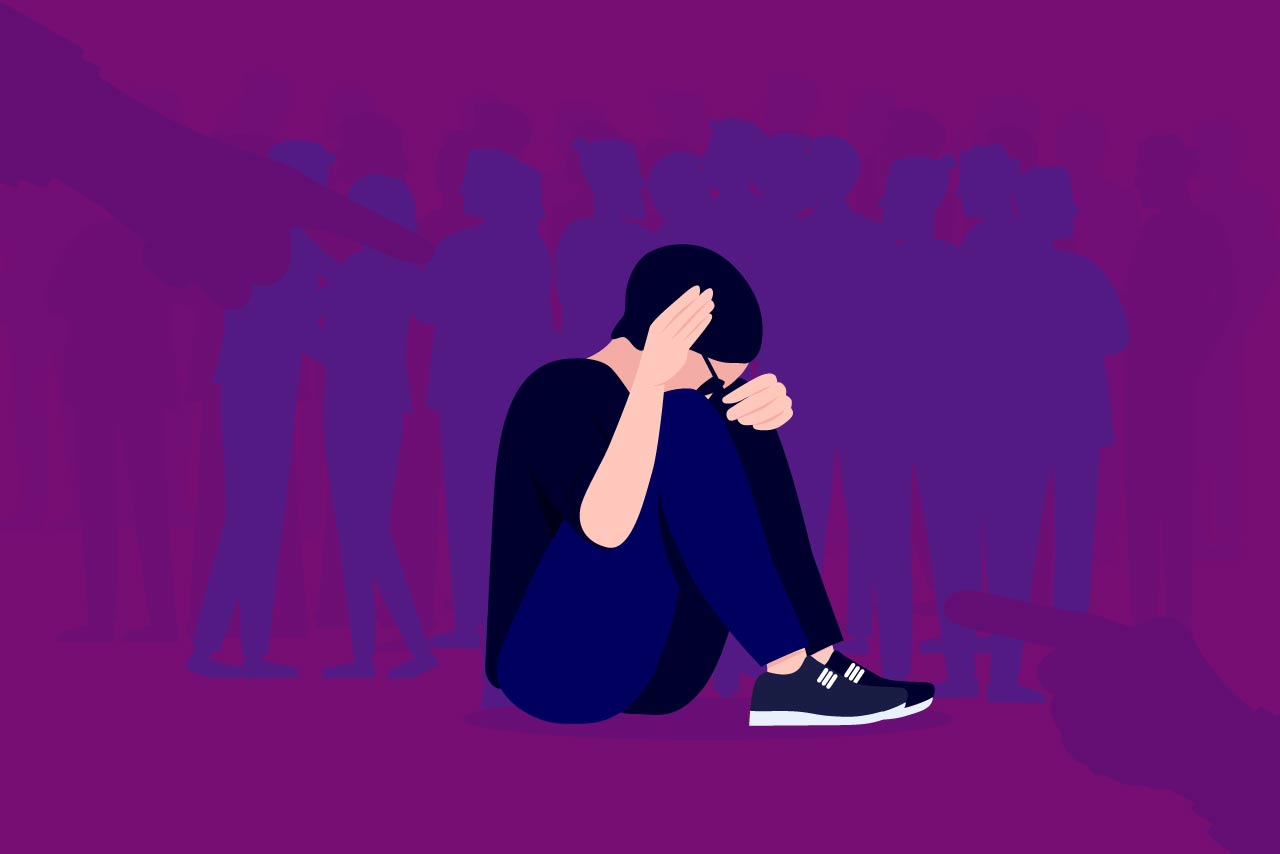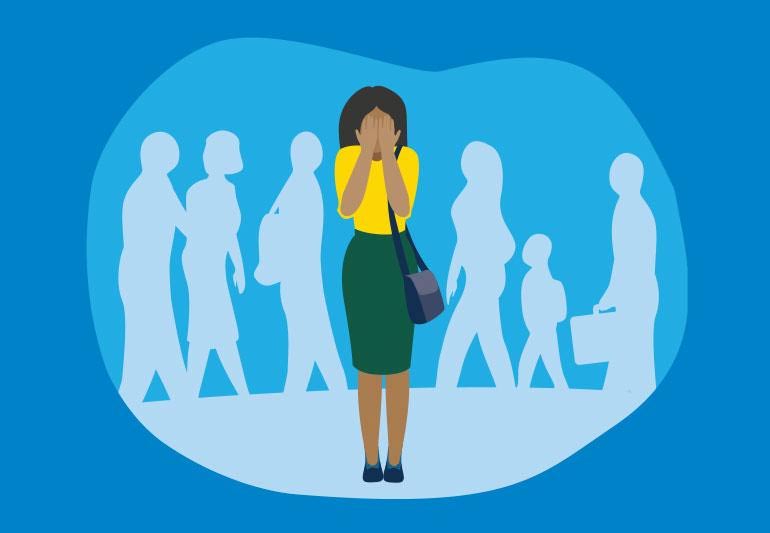Signs of social anxiety disorder that are easily mistaken for shyness
Feeling anxious or overstimulated in a supposedly 'fun' social situation isn't unusual. Some people are naturally shy. Others may experience signs of social anxiety —and have a hard time recognizing it.

On the surface, shyness and social anxiety aren't all that different—especially if you're someone who's shy about small talk or who takes time to warm up to new people. Being reserved or introverted are two personality traits that can make group socializing a pain, but they don't typically ruin your life the way social anxiety (a mental health condition) does.
The clinical definition of social anxiety disorder is a persistent, overwhelming fear (not just discomfort) of being judged by others—strong enough to affect your work, school, or relationships . But there are also more subtle, everyday forms that therapists often see.
' Not all anxiety is clinical ,' Chloe Carmichael, PhD, a New York City-based psychologist and author of 'Nervous Energy: Harnessing the Power of Anxiety,' tells SELF. Depending on the person, these milder experiences can be disruptive, turning everyday interactions (like meeting new people or speaking in public) into panic. Here are some signs of social anxiety disorder that are often confused with shyness.
You want to express yourself but feel like you can't.
Deep down, people with social anxiety want to connect, says Dr. Carmichael. They just feel paralyzed by fear of criticism or rejection.
This might be like having your eye on a fun, energetic group of friends at your college reunion, but holding yourself back from joining in. What if you kill the mood? Or worse, they secretly make fun of you afterward? Or you have something important to say at a staff meeting, but stay silent for fear of looking stupid. Even sending a simple text like ' Wanna hang out? ' to a new friend can be intimidating, because you worry about coming across as ' clingy ' or ' too much .'

You are outgoing and talkative. but still feel distant from people.
Social anxiety doesn't always mean staying home all weekend or hiding in a corner of a loud nightclub. Sometimes it exists within people who are talkative, outgoing, and seem comfortable in any crowd.
' It's possible to be an extrovert who's socially anxious ,' Ellen Hendriksen, PhD, a psychologist at Boston University's Center for Anxiety and Related Disorders and author of How to Be Yourself: Quiet Your Inner Critic and Rise Above Social Anxiety, tells SELF. But in these cases, the inner turmoil stems from a nagging suspicion that perhaps you don't really belong. Someone who accepts every invitation and seems to enjoy socializing with a group of friends might still spend the evening obsessing over every word they say, or secretly wondering whether their friends want them there.
You tell yourself to relax, but your body won't listen.
Often, the physical signs of social anxiety appear before your brain has time to intervene. So, in addition to the classic mental spiral of overthinking and second-guessing, your heart may race when you see a group of friends laughing without you. Your stomach may suddenly churn, and you may be hit with a wave of nausea just as you're getting ready for a social event.
You are constantly afraid that people are judging you, even after interacting with them.
A core feature of social anxiety is a strong fear of rejection and the constant rumination that comes with it.
There's always the worry that people are judging you for saying the wrong thing, dressing sloppily, or being boring, incompetent, or stupid. These worries often linger long after the moment has passed. For example, even after a really fun date night, your brain might continue to focus on what you said (Did I share too much?) or replay how you accidentally spit while talking (Maybe they thought I was rude). Meanwhile, if you're shy or anxious, you'll often walk away from a relatively positive experience convinced that everyone is secretly weirded out by you.
You don't get along with people for long.
It's normal to be nervous, quiet, or anxious at first, but then gradually become more comfortable once you've had a few conversations or gotten to know the group.
With social anxiety, however, that uncomfortable feeling often lingers—even after you've socialized or been around people you know. This is because anxiety isn't about breaking through shyness. It's a persistent, deep-seated fear of being embarrassed, humiliated, or rejected, and it doesn't go away with time or familiarity.

You completely avoid important opportunities.
We're not just talking about missing out on the company happy hour of the month or turning down a party invitation just because you don't recognize anyone on the guest list.
In more severe cases, people with social anxiety may turn down important life moments out of fear. Think about it: turning down a promotion that requires more public speaking, or missing your best friend's birthday because the thought of socializing with strangers doesn't seem worth it. Many people may find these situations difficult or overwhelming, but they can still get through them. But people with social anxiety may miss out on these opportunities altogether.
You should read it
- ★ What is addiction to social networks and how to solve this problem?
- ★ Finding a new gene can join to cause anxiety disorder
- ★ What is a social signal? How important is the Social signal to SEO?
- ★ What is Social Engineering? How to prevent Social Engineering?
- ★ Science is still finding the mystery behind 'hole-fear syndrome - trypophobia'